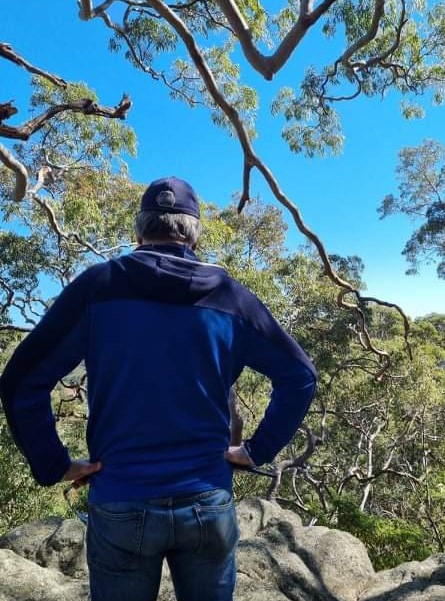I can remember an initiative game from my time as a Camp Leader that stands well as a metaphor for mental health struggles in these isolated times. It teaches young people to know what to do when someone is isolated and not okay.. The game involved an old style garbage bin with a hundred or so small holes drilled in the sides. The campers’ job was to fill the bin with as much water as they could from the nearby pool. A job that required many fingers in many holes. The students start out slowly, filling the bin and trying to stay dry. Very quickly though, they realise that in order to achieve their goal, they are going to need to work as a team and accept that they might get a little wet.
Sometimes, with an organised approach, the bin was nearly filled. Mostly, however, the pressure of constant water, the inevitability of people only looking out for themselves and a lack of foresight meant that things usually ended up getting messy.
The parallels here are fairly obvious. If you are struggling to cope with the overwhelming nature of modern life, you might cope on your own for a little while. Most likely though, if the pressure keeps up, you will be overrun and things will end up becoming even more difficult.
The obvious point to make is that we need a good team in our corner to help us through. A team that is willing to get messy with us if the situation requires it. We are born into relationships. If we don’t have parents or carers, we simply don’t survive. We aren’t meant to do it all on our own, so get yourself a support crew.
Suffering in silence
Unfortunately, In our image conscious society, where selfies and our online presence are so highly regarded, showing emotion and sensitivity is almost considered a weakness. Our digital lives are nipped, tucked and filtered to such a degree that we hardly recognise ourselves anymore, let alone admit flaws. No wonder people suffer in silence. No wonder our rates of anxiety and depression are so high. Many in fact choose to end their own lives rather than reach out for help, such is the perceived judgment we all face.
Whether this judgment is real or imagined is not important. The simple fact is that people believe it. This is why recognising the signs of struggle in our loved ones, our colleagues and ourselves is so important. This is why initiatives like Are You Okay? are paramount in our working together as a compassionate community.
Sometimes the signs are obvious- Sometimes not.
The Key signs to look for are quite well known. Sometimes these signs occur after great life changes, but sometimes they don’t. That is why they are so important to recognise. If someone becomes increasingly withdrawn, appears tired, cranky, loses weight, becomes unusually anxious, is drinking too much or expresses feelings of worthlessness, then perhaps they are struggling and need your attention.
At other times, people become masters at hiding their pain for fear of being found out. Sometimes they haven’t even admitted it to themselves. Sometimes all they need is a good friend to ask if they are okay for everything to come rushing out. Don’t be afraid of embarrassing them or yourself. The dangers of not saying something are much greater..
Do your research- Know how to respond.
If you are going to check in on someone, you should make sure that this does not occur somewhere that they will be embarrassed. You should pick a time when you both have a moment or two to spare and you should be prepared to know how you will respond. The RUOK suicide prevention website has detailed information on this and is a must for practical approaches..
If someone tells you that they are genuinely fine, then that is great. Just tell them you care. If, on the other hand, the person admits that they are not okay, then don’t panic. In many cases they just need a shoulder to lean on and to know they are not suffering alone. They need you to listen and offer support. In other cases, they may need to know that seeing a Doctor and a Psychologist is the strong and intelligent thing to do.
There are many other ways to help. You can meet regularly for coffee, you can organise a medical appointment for them, you can offer to go with them and you can even sit down together and work through the information on websites like The Black Dog Institute and Beyond Blue. These sites even have a depression checklist that you can access.
In my own situation, my wife finished my sentence of admission for me and even rang the doctor. My brother checked in on me regularly, a friend met me on Saturdays for coffee and yet another guided me through the core issues. This was all apart from the fact that professional medical people were dealing with the medication and counseling. I am confidently assured that not one of these people look down on me as weak or misguided.
We all need support sometimes.
The people in our lives need to know that it is human to feel vulnerable and overwhelmed at times. They need to know that the world of influencers, highly paid celebrities and reality TV are little more than fiction and that the only goals they need to live up to are their own values.
More than anything, though, they need to know that it is okay to be sensitive at times and it is okay to feel vulnerable for whatever reason. They need to know that being honest about their pain is showing strength and they need the people in their life to model this whenever relevant. Importantly, they need to know that seeing a Doctor or a Psychologist is a natural and helpful thing to do.
In such a hyper connected society, it is a bitter irony that most of us report feeling isolated at times. The good news is that in most cases, the best thing you can do is drink a coffee together, go for a walk and have a good chat. If it’s more than that, then you’ll be ready.
Links
A conversation could change a life | R U OK?
Mental health resources and tools – Black Dog Institute
Types of depression – Beyond Blue
As you’ve read this far, please check out the links below. The resources are fantastic.
Escape to resilience » The Good The Bad and The Unrelated



👍
Ta, Pal.
This is a very helpful article! So many times it’s easy to get caught up in our own selves and not recognise the struggles others are facing. Worse still is when I’ve thought “ why doesn’t this person just snap out of it”
Thanks Ruth. It is always easy to get caught up in ourselves, especially at times like this. I appreciate your thoughts.
Great article!
Thankyou kindly
Thanks for sharing so openly, posts like these can help so many people.
Thankyou so much, Stephanie. I really hope that they give someone a little light for their journey.
Pingback: Holding back the tide » The Good The Bad and The Unrelated
Pingback: An outward focus » The Good The Bad and The Unrelated